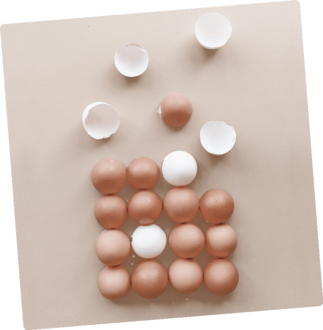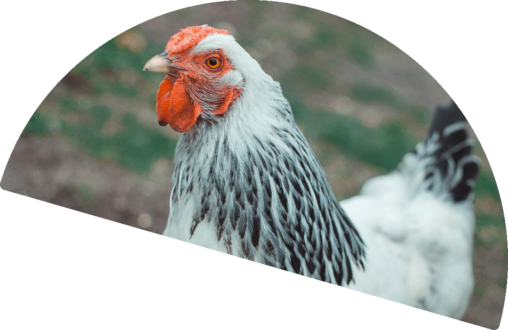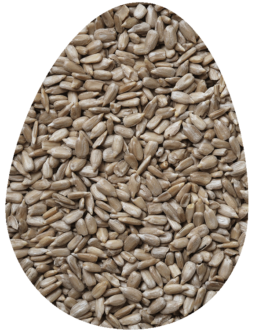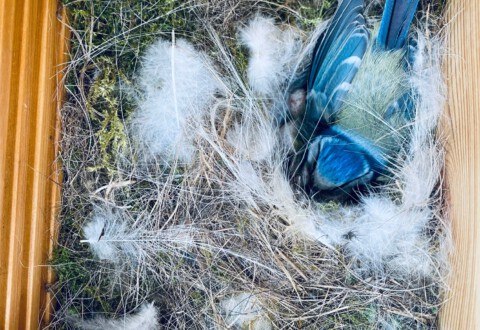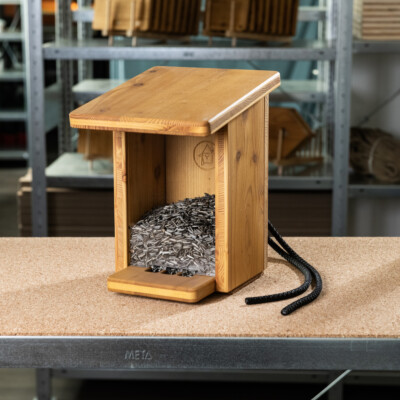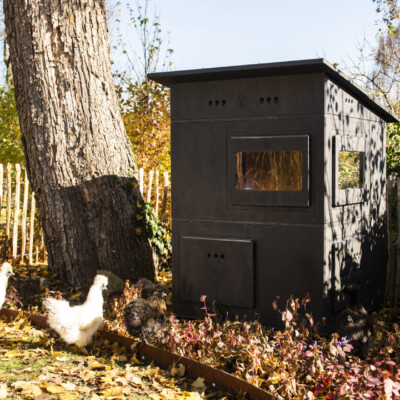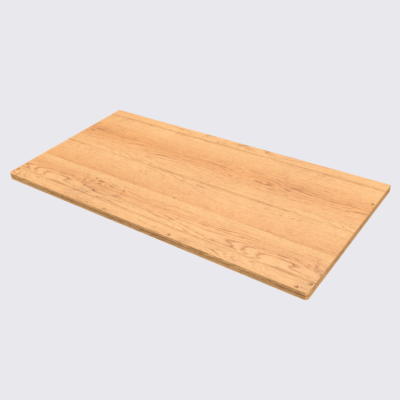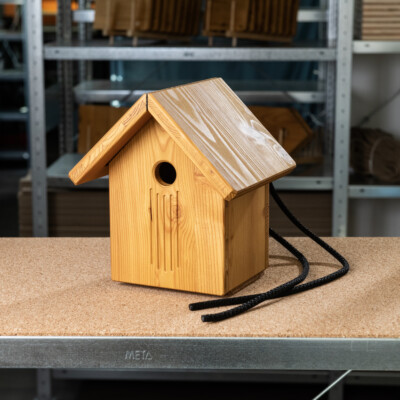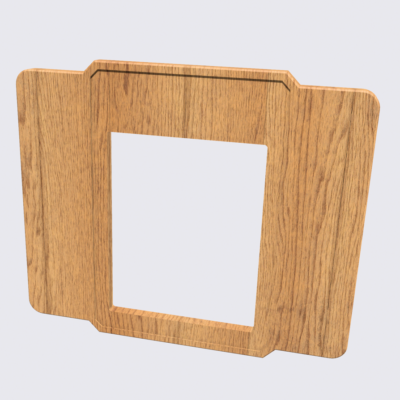Before I started keeping chickens almost 10 years ago, I wondered how time-consuming this hobby would be. You will probably be asking yourself the same question, and I’m here to assure you – there is barely a pet out there that requires as little daily work as chickens do.
For a better overview, I’ve divided the activities into the following 3 groups:
- Things you have to and/or should* do daily
- Things that only come up every few weeks
- Things you have to do, in the best case scenario, just once.
* some things can wait a few days if necessary
How much time you actually have to spend looking after your chickens depends very much on the answers to the following:
- Where is the coop/run located – i.e. how far is it from your home?
- How many chickens do you have?
- How automated is your chicken coop/run setup?
In this article I will show you not only what to do, but also what happens if you don’t do it.
Things that should be done every day
In total, you can easily get by with 10 minutes a day. If you have an automatic chicken flap, a natural water source, automated feed dispenser and possibly a coop camera, you will be much faster. However, if the coop is farther away from your home, you still have to consider these travel times.
Here it is in more detail:
Letting the chickens out of the coop in the morning
every day a MUST – time required < 1 min
What happens if you forget?
If you have a fully-equipped chicken coop (i.e. all the chickens’ basic needs are catered for from within), then the animals can also be kept only in the coop for a while without any problems. If you have a simple sleeping house, however, then the chickens absolutely have to go out into the run every day.
How to save time!
With the help of an automatic chicken flap that opens the coop door in the morning and closes it in the evening without you having to do anything, this step is completely eliminated.

Providing clean, fresh water
daily a SHOULD, every few days a MUST – time required < 5 min
What happens if you forget?
If no water is available, this very quickly becomes a great danger for the chickens – they need more water than you might think, especially in summer (>200ml per chicken per day). It is also important that the water container is kept clean, otherwise the chickens can fall ill.
How to save time!
This job is completely unnecessary if you are lucky enough to have a natural water source (e.g. a pond).
Feeding
every day a MUST – time required < 5 min
What happens if you forget?
Chickens need food every day. They are basically dependent on you feeding them, unless the run is large enough and offers sufficient natural food sources. However, this will rarely be the case, and at the very latest in winter, supplementary feeding is as good as unavoidable. If the chickens have no food, they will starve extremely quickly.
How to save time!
If you use a feeder, you save the time on the daily feeding. In this case, you only have to check the feed level regularly and refill it when needed. However, you will have to clean the feed dispenser weekly. A further time-saving tip – store the feed near the coop.
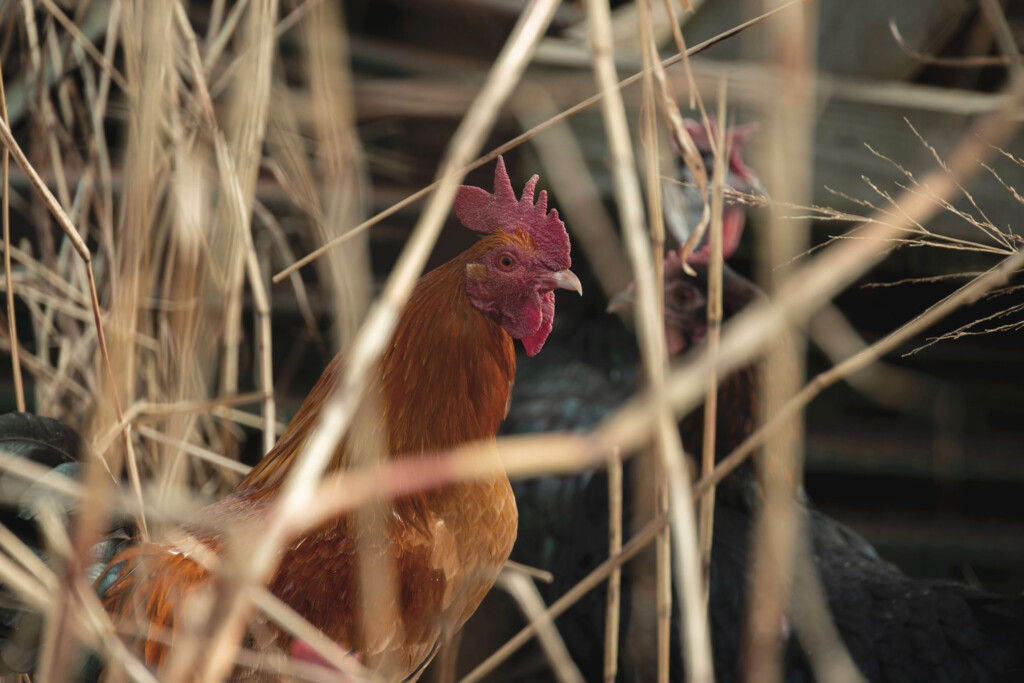
Checking and cleaning the coop
daily a SHOULD, every few days a MUST – time required < 5 min
What happens if you forget?
Not cleaning the coop even for several days is not a major problem. However, their droppings will keep building up, and slowly but surely the smell will become ever more unpleasant. In addition, the whole process of cleaning is then much more time-consuming.
How to save time!
If your chicken coop has a removable droppings panel, you can dispose of the night’s droppings very quickly. In addition, how far you need to walk to your compost heap or organic waste bin should be kept to a minimum. If necessary, it makes sense to store the manure in a bucket near the coop – then you only have to dispose of this bucket every few days.
Collecting eggs
daily a JOY, every few days a MUST – time required < 1 min
What happens if you forget?
No problem – the eggs will simply pile up in the coop. However, it could be that the chickens then mistakenly break an egg and eat its contents. Why is that a problem? Well, they might well like it. And if they get a taste for it, they will then deliberately peck them open in the future.
How to save time!
There are systems available on the market where the eggs automatically roll into a container separate from the chickens. However, I am not sure how well these work in reality.
Checking whether all the chickens are in the coop in the evening and closing the coop.
every day a MUST – time required < 1 min
What happens if you forget?
If a chicken is not in the coop at night, or if the chicken coop is not locked, they are in great danger of being snatched up by foxes, martens and the like; one thing is for sure – these predators are always on the hunt.
How to save time!
The time needed to close the coop is completely eliminated when you use an automatic chicken door.
However, you should still check every evening whether all the chickens have gathered in the coop. If you use a WIFI coop camera, you can also do this remotely if necessary.
> my EXPERIENCE: “Does that still sound like a lot of work to you? Rest assured – you will voluntarily spend much more time with your chickens and their care anyway!”
Things that only need doing every few weeks
Buying feed
time required: 15 min.
The buying of food, bedding etc. is only necessary every few weeks. If you do this as part of your regular household shopping, it isn’t a big deal. When storing the food, you should make sure that it is protected from mice and birds for hygienic reasons.
Big clean of the coop, incl. whitewashing the walls
time required: 30 – 60 min.
Thorough cleaning and mucking out of the coop is very important, and can take between 30 to 60 minutes. The time required and the thoroughness of the cleaning depend very much on your coop. There can be quite stark differences here, which is why you should definitely consider this factor when buying and also configuring your coop.
Whitewash is often applied to the entire interior of the coop to prevent an infestation of poultry red mite from getting a hold.
> my EXPERIENCE: “If your chicken coop doesn’t have many corners, edges & slits where mites can hide during the day, and you always keep the coop clean, you can even do without whitewashing!”
Maintenance of the run
time required: 30 – 60 min.
The maintenance of the chicken run is comparable to the maintenance of a conventional garden area. You even save some time, because your chickens take care of some of the gardening tasks for you. For example:
- Chickens love to eat grass. They constantly peck off individual blades of grass – therefore you need to mow the lawn less often.
- They loosen the soil.
- They remove many an unwanted plant through their scratching and pecking (chickens do the weeding!).
- While chickens unfortunately don’t eat adult slugs, you will still have fewer of them since they do eat their eggs!
Things (in the best case scenario) you only have to do once
In my experience, the initial building and developing of a chicken coop & run takes up the biggest chunk of time. If you want to build your own coop that comes as close as possible to meeting the needs of both you and your chickens, then you will certainly have to factor in spending several whole days on planning, purchasing, assembling and setting up.
It is also important that you choose quality from the outset. If you opt for poor quality, you will find yourself having to replace parts of the coop and run after only 1-2 years at the latest.
> My EXPERIENCE: “I have tested 2 different cheap chicken coops (~€500 each). I had to completely replace both after less than 2 years. This not only cost me money, but also a lot of time in purchasing, assembling and painting all over again. So, I recommend you avoid this mistake and simply buy a high-quality chicken coop from the start!”



